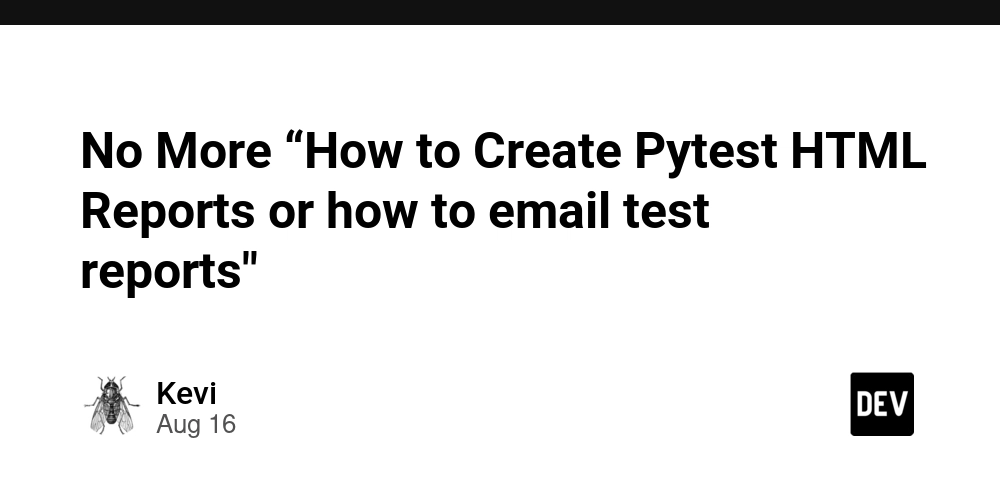Today I ran into something funny — I needed a decent HTML report for my pytest run, and my first thought was:
another half-hour lost to figuring out pytest-html configs.
Usually, that means:
- Installing
pytest-htmlorallure-pytest - Setting up .ini or passing a long list of CLI flags (or even installing Java in allure’s case)
- Making sure people on other machines can actually open the report
- Writing a little conftest.py hook to add metadata
- Trying not to break CI/CD in the process
Time spent? Way too much, just for a simple report.
And in my case, there was another catch — I was running tests in parallel with pytest-xdist.
If you’ve done that before, you will need another merger plugin to merge all the xmls
So I looked around for that plugin but found pytest-html-plus.
I didn’t even read the docs at first — I just installed it:
pip install pytest-html-plus
pytest -n auto
Done.
That’s it.
…and it just worked.
Full HTML report, already pretty, self-contained, no setup, no config.
What surprised me:
- It handled parallel runs without breaking the report (even with xdist)
- Added metadata like branch, commit, environment, and timestamp automatically
I could copy logs and errors with one click
The report was shareable as-is without worrying about dependencies
I didn’t have to touch a single test file — no extra hooks or decorators
Honestly, the whole “report” part of my workflow went from “ugh, I’ll do it later” to “done in 5 seconds”, even in CI.
If you’ve been wrestling with HTML reports in pytest — especially with parallel runs — this was a nice surprise.
Even better part is that I could email the test report by just triggering --plus-email



